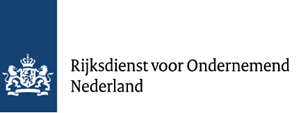Project Lignin2Jetfuel
Renewable jet fuel range hydrocarbons from biomass residues derived lignin
This project aims to develop a proof of concept (TRL 3-4) scalable technology to produce jet fuel components; oxygen free- alkyl aromatics and cycloalkanes from 2nd generation lignocellulose derived lignin.
A further aim is to create new value chains and to demonstrate the attractiveness of the new to be developed sustainable technology-via techno-economic and life cycle analysis.
To this date, efforts to produce jet fuel components from bio-renewable sources succeeded in producing n-and iso-paraffins, without any alkyl aromatics or cyclo-paraffins. Such cycloalkanes or alkyl aromatics and minor oxygen containing (phenolic) additives are required for compatibility with gaskets in current jet engines. Consequently, the bio-based paraffinic jet fuel components needed to be blended with petroleum-based alkyl aromatic/cycloalkane components at the risk of enhanced CO2 emission. Thus, our proposal may offer a biobased and sustainable solution for the necessary aromatic/cycloalkanes and a possibility to produce a 100% bio-based jet-fuel with a more favorable reduced CO2 footprint.
Sekab and Renewi will supply purified biomass. Vertoro will fractionate the biomass into carbohydrate and lignin oligomers. WFBR and TU/e will perform depolymerization of lignin oligomers and subsequent C-alkylation to produce monomeric alkyl-phenolic components. Depolymerization/alkylation of lignin stream will be further upscaled at WFBR/Vertoro. Q8Research will perform catalytic hydrotreatment of alkylated phenolic monomers. Product stream will be assed for suitability as jet fuel components. Additionally LCA/TEA analysis will be performed at WFBR to compare the developed technology to the existing technology.
ACTIVITIES of Q8Research
The role of Q8Research is to set the performance requirements of the catalytic conversion process and to assess the potential to use the products from the catalytic conversion process in jet fuel.
The role is partly advisory and partly laboratory work.
PARTNERS
- Wageningen Food and Biobased Research (WFBR), Coordinator
- Technical university of Eindhoven (TU/e)
- Vertoro B.V
- Sekab Biofuels & Chemicals
- Renewi Nederland B.V
ADVISORY BOARD
SUPPORTED by
This project is funded by RVO under project number TIND221009 and runs from March 1st 2022 until February 28, 2025


PROJECT DURATION
April 2020 - March 2024
PROJECT BUDGET
€ 4.998.653,70
PROJECT CONTACT
[email protected]